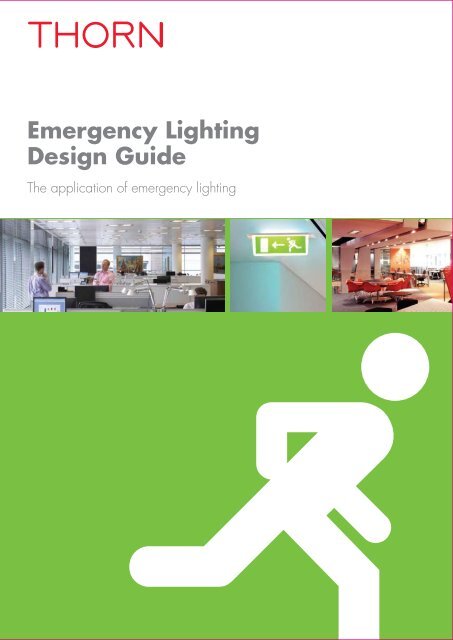The main reason for installing an emergency lighting system is to enable the building to meet fire safety legislation in a way that is visually acceptable and meets the user’s needs for ease of operation and maintenance. This design guide will help you to plan and implement an emergency lighting installation that satisfies all the legal requirements and ensures safe evacuation in the event an emergenc. Further to some recent updates to the associated standards, there are minor additional areas that it may also be advisable to consider. Fire safety legislation places. Securely Checkout In Seconds.

Improve Your Business ROI - Get a Better Deal on high power led. A preview lesson on emergency lighting basics and an overview of exit signs and emergency lighting and the role they play in the safe evacuation of people occupying a. The purpose of emergency lighting is to provide immediate secondary. This guide outlines the main legal requirements and standards relating to emergency lighting prior to explaining the lighting requirements for the various areas, such as defined escape routes, open areas and areas where hazardous processes take place.
This is followed by the design section that outlines the steps a designer should take in ensuring that there is adequate escape lighting and signage to guide a building user from any part of the building, through the escape routes, out of the. Emergency lighting is an essential part of the health and safety provision for any building. This new edition has been updated to assist those engineers wishing to protect occupants from the hazards identified by. Cabling needs adequately to resist the.
This is a guide and introduction to emergency lighting including terminology, locations and purpose of emergency lighting. A list of the most commonly used terms and their definitions to help you understand the different types used in Emergency Lighting. Non Maintained: This is a light fitting containing one or more lamps all of which operate from the emergency supply only following the mains failure.
EMERGENCY LIGHTING – A BEST PRACTICE GUIDE EL. Is your emergency lighting compliant? There are many technical words, titles and abbreviations used in emergency lighting and whilst it is not possible to provide an exhaustive list, we hope that this.
Emergency Safety Lighting should help occupants continue normal operations in the event of failure of the supply to normal lighting. Business owners need to have a clear understanding of the regulations and standards surrounding emergency lighting. The standards and regulations have been put in. Shop today at TLC Electrical!
Find Audited China Manufacturers of Emergency Exit Light Exporter. Having emergency lighting in warehouses and industrial environments is a legal requirement. A simple, short-form visual design guide to emergency lighting requirements. Please feel free to click the link in the downloads section below for more details.
Call Illumino Ignis Ltd today for the design, supply and support of all fire alarm, emergency lighting and disability products t. With safety paramount, Emergency Lighting plays an essential part in the daily running of. Users and their supporting engineers need appropriate knowledge of the legislation, relevant standards and product practices to ensure that requirements are correctly implemented. Throughout this guide, reference to “emergency lighting” covers “emergency escape lighting” in particular, but also includes any element of standby lighting, which may be used for emergency escape lighting, and as determined by the risk assessment. How to register to BAFE Emergency Lighting Systems SP203-Scheme In recognition of industry practice and deman the scheme has been split into four modules. Guide to Emergency Lighting.
The intention of this is to ensure that a company only gains BAFE registration for the modules in which they are competent to work. Every emergency luminaire must have a green LED indicator to show it is charged and functional. We take an in-depth look at this life-saving lighting.
UK fire safety legislation states that people in premises must be able to find their way to a place of total safety if there is a fire by using escape routes that.
No comments:
Post a Comment
Note: only a member of this blog may post a comment.